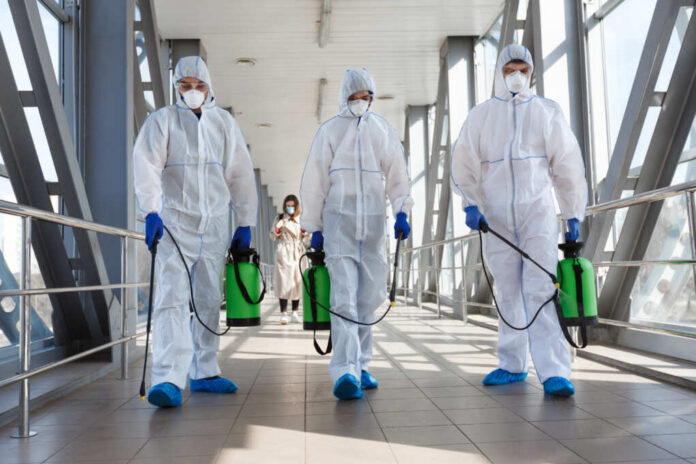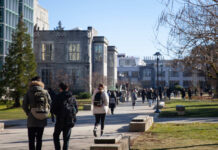
On Thursday, the Taiwan Ministry of Health and Welfare (MOHW) recommended that young and elderly individuals, along with those with compromised immune systems, refrain from traveling to China amidst its spike in respiratory illness.
While the Chinese government maintains it has the outbreak in check, recent observations indicate the reimplementation of travel restrictions and the use of disinfectant spraying in public areas, methods previously employed by Beijing during the coronavirus pandemic.
Following the weekly cabinet meeting, the MOHW released a statement advising against non-essential travel to China, Hong Kong and Macau. The ministry further recommended that individuals planning to visit these destinations should receive vaccinations for both influenza and the Wuhan coronavirus before their departure.
According to Shu-Ti Chiou, an epidemiologist at the Health & Sustainable Development Foundation in Taipei, the advisory could give the public the false impression that they won’t contract respiratory illnesses as long as they avoid traveling to China.
Rajib Dasgupta, a professor of community health and epidemiologist at Jawaharlal Nehru University in New Delhi, similarly emphasized that “travel restrictions for respiratory infections are not an effective measure for interrupting transmission.”
Certain public health researchers deemed the travel advisory reasonable, suggesting that Taiwan might face an increase in respiratory illnesses during winter and after the easing of pandemic restrictions. Sung-il Cho, an epidemiologist at Seoul National University, mentioned, “They would be cautious not to hasten it by overseas travels.”
The global community discovered, at significant expense, during the Wuhan coronavirus pandemic, that the Chinese government rejects travel restrictions imposed by others, viewing them as affronts to the regime. Meanwhile, China freely enforces its own lockdowns and travel restrictions whenever deemed necessary.
The Chinese government has a track record of downplaying the seriousness of disease outbreaks, predating the Wuhan coronavirus pandemic. Reuters highlighted that Taiwan vividly recalls China’s concealment of the SARS outbreak in 2002-2003.
On Thursday, Wang Wenbin, the Chinese Foreign Ministry spokesman, asserted that the respiratory illness outbreak in China is well-managed and merely represents a slightly more intense cold and flu season than usual.
Doctors in China informed the Global Times that they have not identified any signs of a new pathogen akin to the Wuhan coronavirus in the ongoing outbreak. Instead, they observed a rise in mycoplasma pneumonia, which they attributed to the aftermath of the coronavirus lockdowns.
In the city of Sanhe, Chinese residents have shared videos depicting workers in ominous hazmat suits dispersing disinfectant clouds across classrooms and city streets. This approach, developed by China in the latter phases of the pandemic, echoes the times when entire cities were under lockdown and anxious residents were confined to their apartments.
JUST IN—The "Mystery pneumonia" affecting kids and ripping through China and parts of Europe, is reportedly now in America.
142 child cases of "white lung syndrome" have now been recorded in Warren County, Ohio since August, meaning if true, it's been here for months.
CDC… pic.twitter.com/j8MgKOPuUQ
— Charlie Kirk (@charliekirk11) November 30, 2023














